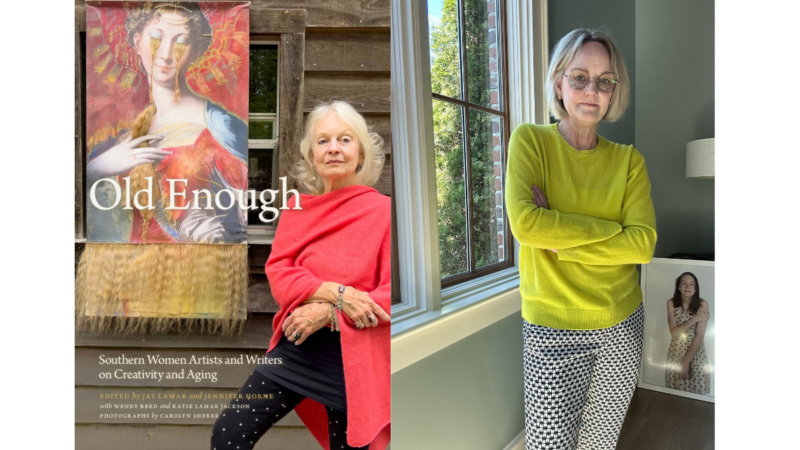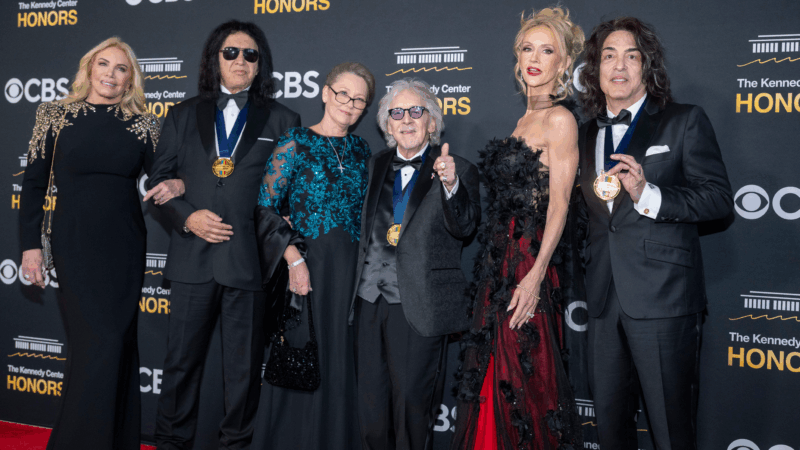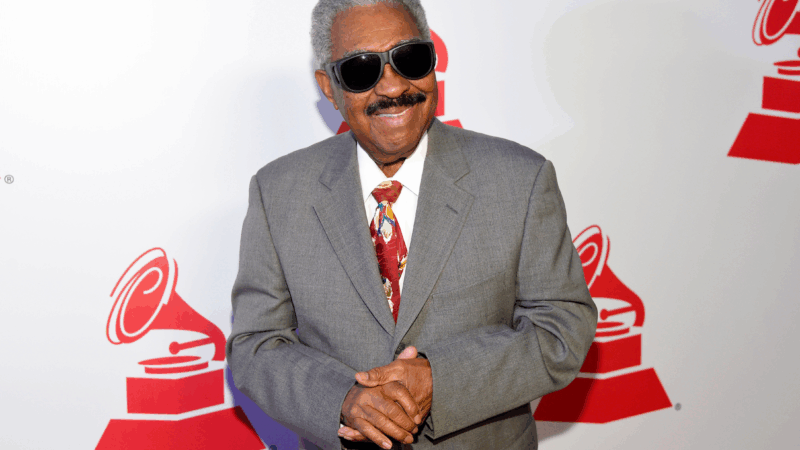New book tries to recapture the narrative on aging
Look at mainstream culture and it’s clear – youth is king. But a new book pushes back against that notion. The book Old Enough celebrates the process of aging. It consists of 21 essays from older Southern women artists who reflect on ageism, loss, and health issues. But they also talk about how art has shaped them and how aging has encouraged them to continue creating and exploring.
Carolyn Sherer is not only a contributing essayist, she took portraits of the writers that accompany each essay.
She sat down with WBHM’s Kelsey Shelton to talk about her essay and her photography.
This interview was edited for length and clarity.
Carolyn, tell us a bit about the kind of art you make.
I create individual images to create a composite portrait of often marginalized communities. So the idea is to put a face on a community that’s been invisible or marginalized in some way. And I’ve done one that the gay community is very familiar with, and some other people maybe as well, for the Civil Rights Institute. The first one was “Living in Limbo: Lesbian Families in the Deep South.”
You faced backlash for that exhibit, correct?
Yes. One of our major local university’s office of diversity pulled their logo from the poster because they thought it was too controversial. Then the printer had to have the poster printed at night, when the man who usually used that piece of equipment was gone. He had refused to print it because of religious reasons.
It was a galvanizing force in our community. People started going to their employers and asking for same-sex benefits. It was a turning point for us. And it was freeing. And in that exhibit, a lot of the lesbian families had their backs to the camera because they were afraid of consequences. And at the opening, which was huge, people came out of the closet. Everybody’s out of the closet, even the ones with their, back to the camera. So it was a social movement. And it never would have happened without Dr. [Lawrence] Pijeaux and Ahmad Ward, who were at the Civil Rights Institute at the time.
There were also public and private conversations that were sparked because of it. For example, there was a woman on the city council who publicly stated that she was appalled that the Civil Rights Institute would show the work, that she didn’t want the gay community to appropriate the Black Civil Rights Movement. I didn’t say anything, but the president of the board of directors of the BCRI, who was the daughter of a civil rights leader in Birmingham did. She said civil and human rights are for everybody. Period.
In your essay you talk a lot about the generational divide that exists within the LGBTQ community. You have a quote that says, “I want to ask, ‘do you know where we have been?’” Tell me about that – where have you been, and why should younger people be aware?
There’s always going to be a generation gap. It doesn’t matter if you’re gay or straight. Younger people don’t know their history because they typically were raised by heterosexual parents. The schools certainly don’t teach the history. We have been in a situation where there were absolutely no legal protections for the LGBTQ community. It’s actually not much better. But, socially, people have moved on as though they do exist.
I would say to young people, find somebody who’s lived through the 60s, 70s and 80s and talk with them and really make it your responsibility to understand how it was to live without being a fully-equal citizen and then educate yourself about the candidates and vote. I’m pretty confident that this younger generation of straight and gay kids, and everywhere on the spectrum, that they’re not going to let us lose our rights again.
In the book, you say aging has set you free. How has it?
I think like most women my age, and I was born in 1957, I think most women my age feel confident in their perspective, and it’s a strength that’s born from a lifetime of wins and losses. It just is. Having that strength and insight allows me to pretty much do what I think is right now without worrying about what other people think or are going to do to me.
Portraits from Old Enough can be seen at the Montgomery Museum of Fine Arts until August 11.
Tributes, not politics, play center stage as Trump hosts the Kennedy Center Honors
President Trump said he was closely involved with picking the honorees, and on Sunday he became the first president to host the Kennedy Center awards ceremony.
Thailand launches airstrikes along border with Cambodia as tensions reignite
Both sides accused the other of breaking a ceasefire that halted fighting earlier this year. Longstanding border disputes erupted into five days of combat in July that killed dozens.
Rafael Ithier, a legend of salsa music, dies at 99
The pianist, composer and arranger spent more than six decades turning El Gran Combo into one of the premier salsa institutions of Latin America and beyond.
Light from satellites will ruin majority of some space telescope images, study says
Astronomers have long been concerned about reflections from satellites showing up in images taken by telescopes and other scientific instruments.
Defense Department is reviewing boat strike video for possible release, Hegseth says
In a speech on Saturday, Defense Secretary Pete Hegseth defended the strikes, saying: "President Trump can and will take decisive military action as he sees fit to defend our nation's interests."
Bama, Miami in, Notre Dame out and Indiana No. 1 in College Football Playoff rankings
Nobody paying attention for the past 24 months would be surprised to see Indiana – yes, Indiana – leading the way into this year's College Football Playoff.









